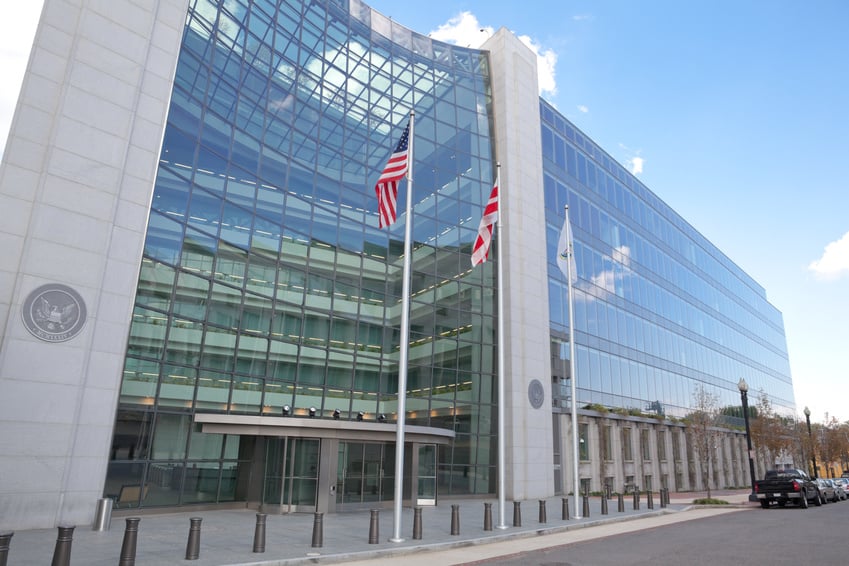On 17 January 2024, the International Swaps and Derivatives Association, Inc. (ISDA) launched a new clause library – this time for sustainability-linked derivatives (SLDs) – that sets out template contractual terms and related definitions for SLD transactions. The SLD Clause Library introduces standardized provisions for SLDs to meet the growing market demand for derivatives products linked to environmental, social and governance (ESG) goals, enhancing the commercial viability of SLDs as an effective financial tool to facilitate the delivery of sustainable initiatives.
As another year of uncertainty and disruption draws to a close, our Baker McKenzie Financial Institutions lawyers look ahead at the potential disruptors impacting the industry in 2024, all against a background of economic and geopolitical risk.
Our report, 2024: What’s on the Radar for Financial Institutions?, gives an overview of the challenges facing the sector, drawing on our three risk radars, one for each of the forces that are transforming the financial sector.
On 23 December 2023, the United Nations Advisory Body on Artificial Intelligence released an interim report, marking a step forward in the global discourse on Artificial Intelligence (AI) governance. This report, a collaborative effort of experts from government, the private sector, civil society, and academia, calls for a robust global framework to regulate AI. Its publication underscores the urgency and complexity of addressing AI’s rapidly evolving landscape.
Gathering at a pivotal moment, the 28th Conference of the Parties unfolded against the backdrop of projections that 2023 is poised to be recorded as the warmest year on record. The accelerating impacts of climate change served as a stark reminder of the urgency addressed throughout the conference.
Baker McKenzie’s Global Climate Change practice was on the ground in Dubai, continuing a decade’s long commitment to be actively engaged in understanding how UNFCCC negotiations create opportunities for clients, and drawing from our observations, we’ve compiled a concise report outlining our perspective on the outcomes at COP28.
The FCA has published a consultation paper (CP23/31) setting out detailed proposals for the major listing rules reforms that it proposed in May this year. It describes the reforms as “the most far-reaching reforms of the UK’s listing regime in three decades” and the paper attaches in a lengthy appendix the draft text of many of the proposed new listing rules (the first of two tranches).
Excerpt: In this article, our lawyers provide an overview of the main trends in the leveraged finance market during a turbulent period, with an M&A backlog and imminent maturities indicating a recovery. They look at changes in borrowing activity, new challenges with new solutions, ESG and digital bonds and consider if a bounce-back is on the horizon.
Baker McKenzie’s Financial Services Global Regulatory (FSR) Guide has been updated for 2021 to incorporate changes across the globe in this rapidly evolving regulatory environment. The Guide acts as a quick reference tool when distributing financial products into new markets, providing a comprehensive summary of regulations applicable to banks and other financial services companies around the world.
The luxury and fashion industry has grown rapidly in recent years, driven by the rising worldwide demand of the image-conscious, growing middle classes in emerging markets, and the incredible advancement and evolution in online retail sales and marketing. These developments have ushered in new challenges for the industry with companies facing more stringent regulations as they expand into new markets and a heightened demand from consumers for greater transparency around sustainability, supply chain, as well as complex tax and corporate issues. This is a Comprehensive global guide to all legal matters relating to the luxury and fashion industry.
This is the 20th anniversary edition of the Global Post-Acquisition Integration Handbook, which since its first publication in 2003 has served as a practical reference tool for any company contemplating, or currently executing, a multinational business acquisition and integration. Key topics such as tax, corporate and employment law are considered, and regional comparison tables summarize the main aspects of integrations in more than 30 jurisdictions. Since our last update in 2017, there has been a great deal of change in the global legal and business landscape, hence this current edition includes new content on recent legal developments in the areas of compliance and risk management (including antitrust, bribery, sanctions and customs), foreign investment review, privacy and data protection.
In this update, we take high-level review of major issues faced by private fund managers investing across the globe. In August and September, private fund managers with U.S. investors faced the broadest expansion of SEC regulation since Dodd-Frank, while European managers worked through the details of ESG reporting. Enforcement continued to be laser-focused on digital assets (but courts didn’t always agree with them), Finfluencers, custody and marketing, while new employment and privacy requirements raised unique issues for asset managers.



